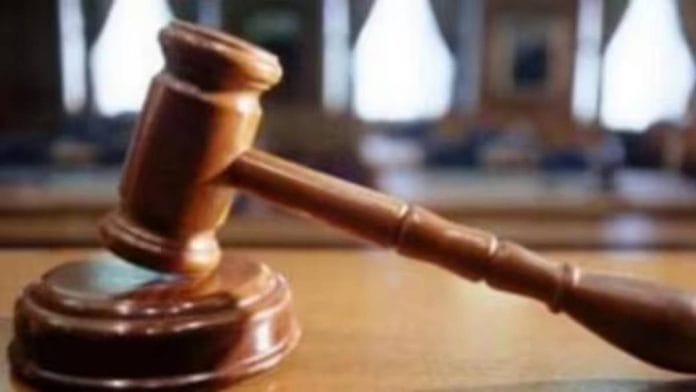New Delhi: Emphasis on online appearances, avoiding comments on a personal appearance such as clothes and setting realistic deadlines for compliance with judicial orders.
These are some of the guidelines that’s mentioned in the Standard Operating Procedure (SOP) that the Modi government has drawn up for government officials to appear in court proceedings. ThePrint has accessed a copy of the SOP.
Appearing before a bench headed by Chief Justice of India D.Y. Chandrachud, Solicitor General Tushar Mehta appraised the court that the SOP had been drawn up after the court and the government agreed in a previous hearing that it was necessary.
The development comes in the backdrop of several courts across the country issuing orders of personal appearance to government officials.
The bench was hearing an appeal filed by the Uttar Pradesh government against an Allahabad High Court ruling that ordered the arrest of two IAS officers. The HC had ordered the arrest of UP’s Finance Secretary S.M.A. Rizvi and Special Secretary (Finance) Sarayu Prasad Mishra in April over the non-compliance of its previous order directing the government to provide facilities for retired judges.
On 20 April, the SC stayed the HC order and directed that the two officers be released immediately. During one of the court hearings, the CJI-led bench had discussed the need to create an SOP for a more congenial and conducive environment and to improve the overall quality of compliance of judicial orders. This, it was felt, would minimise the scope for contempt of court.
After Mehta placed the SOP before the court Monday, the bench directed the SC registry to distribute it to all stakeholders for their feedback. The guidelines will be applicable to all court proceedings where the government is a party.
The court will take up the deliberations on it at the next hearing.
Also Read: ‘National security used to deny citizen rights’ — SC tears into sealed-cover reports, slams govt
No personal remarks, give realistic deadlines for compliance — what SOP says
Among other things, the SOP — a copy of which is with ThePrint — has also taken note of courts remarking on the dress and physical appearance, social and educational background of government officials. Such remarks, according to the SOP, should be avoided.
Further, it has advised against summoning government officials in cases where a government body or ministry is simply a pro forma party or not a necessary respondent.
In legal terms, a pro forma is one against whom no relief is sought in a litigation.
The SOP also lays emphasis on online appearances. For this, it refers to some SC judgements that have directed that in-person appearance of government officials should be called for only in exceptional cases. In such cases, the guidelines say, officers must be given sufficient time to make the appearance.
Making a case for online appearances, the SOP says it would help save time and resources of both courts and governments.
As for contempt cases, the SOP suggests avoiding such action in cases where a statement made by a government counsel contradicts the stand taken by a government in its affidavit. The SOP suggests that before any contempt is initiated in such cases, the court must first entertain the government’s plea seeking a review of the order leading to the contempt petition.
In case a court is hearing a case that falls within the exclusive domain of the executive, the SOP suggests that it should be referred to the government for further action instead of being taken up for adjudication.
The guidelines also deal with the deadline for complying with judicial orders. Courts, it says, should take into consideration the complexities of inter-ministerial deliberations before setting a deadline.
Significantly, a few of the personal appearance orders against government officials have resulted in extreme action against senior civil servants, such as the one seen in the UP case.
In another instance, the Supreme Court Monday closed contempt of court proceedings initiated by the Calcutta High Court against Admiral (Retd.) D.K.Joshi, the Lieutenant Governor of Andaman and Nicobar Islands, and Keshav Chandra, its chief secretary. The HC had suspended Chandra and imposed a fine of Rs 5 lakh on Doshi for not complying with an earlier order on releasing monetary and other benefits to workers. The court had also ordered their personal appearance, prompting the UT administration to appeal in SC.
(Edited by Uttara Ramaswamy)
Also Read: 4 letters, 1 response — how Modi govt’s tussle with SC on judge appointments played out over 7 yrs






